Paying attention to investing in scientists and scientific research projects in the fields of social sciences and humanities means paying attention to building a spiritual foundation for the people, in the face of rapid changes in the technological era. On the occasion of Vietnam Science and Technology Day, the reporter had a conversation with Dr. Phan Chi Hieu, President of the Vietnam Academy of Social Sciences, about this issue.
Reporter : Dr. Phan Chi Hieu, in the current period, achievements related to natural sciences and technology with specific products are receiving strong attention from the whole society, which makes the achievements of abstract social sciences more easily obscured. What do you think about this? In your opinion, how should we perceive and evaluate the position and role of social sciences and humanities in today's life?
Dr. Phan Chi Hieu : It is true that in the context of the fourth industrial revolution taking place strongly today, social sciences and humanities are facing many difficulties, at risk of decline and being "inferior" to natural sciences and technology.
This trend is not only in Vietnam but also quite common in the world . Training and research programs in the fields of social sciences and humanities have declined sharply in universities and research institutes. In the past few decades, governments have also given priority to training and research in STEM and business fields. It is not possible to blame governments or society for not paying much attention to social sciences and humanities. The above decline is also caused by the slow adaptation of social sciences and humanities to the digital age, to the new requirements that real life is posing.
In my opinion, in the new era of development of our country, social sciences and humanities continue to play a very important role. Social sciences are considered the leaders of national development, natural sciences and technology are considered the driving force and tools to achieve development goals.
Social sciences and humanities play an important role in building civic awareness and patriotism; in human development, where people are both the goal and the driving force of social development; people are invaluable assets of every nation. Social sciences provide scientific and practical arguments for planning national development policies and guidelines, effective national governance, solving social problems, and responding to contemporary and global challenges. Social sciences also contribute to preserving and promoting national cultural identity... With the above meanings, social sciences and humanities play an important role, contributing to creating national "soft power".
Reporter : What is your assessment of the field of social science research in Vietnam in recent years?
Dr. Phan Chi Hieu : Personally, I feel that compared to natural sciences, engineering and technology, the social sciences and humanities are moving more slowly; the atmosphere is also more quiet. In this field, in recent years we have not had any large, valuable research projects that are groundbreaking, pioneering, and have resonated and attracted the attention of public opinion. Although our Party's policy is to "Focus on the synchronous development of natural sciences, engineering and technology, social sciences and humanities, and political theory", in reality, social sciences and humanities have not received adequate attention, including awareness, action, and specific investment.
 |
| Dr. Phan Chi Hieu, President of the Vietnam Academy of Social Sciences, received Professor Andrey Margolin (Presidential Academy of the Russian Federation) on April 24, 2025, before the opening of the International Conference "Vietnam-Russian Federation: Past-Present-Future" organized by the Vietnam Academy of Social Sciences in collaboration with the Presidential Academy of the Russian Federation. |
Reporter: What are the most significant difficulties in social science research today, Doctor?
Dr. Phan Chi Hieu : First of all, the awareness of the role and importance of social sciences and humanities in national development is still incomplete and in-depth, leading to limited investment by the State and society in the development of social sciences and humanities. In addition, research products of social sciences and humanities often do not have immediate effects, with clear results, so it is difficult to commercialize research products. Another problem is that funding for scientific tasks is often very low, while mobilizing social resources is not easy, and administrative procedures in implementing projects are still complicated. Due to low income, the team of scientists in the field of social sciences is increasingly depleted. Some rare, in-depth research specialties such as Han-Nom and Archaeology are at risk of being lost.
Reporter : How do you evaluate the effectiveness of scientific research projects in the field of social sciences applied in practice recently?
Dr. Phan Chi Hieu : Many research projects in the field of social sciences and humanities have been effectively applied in practice. The research results have provided many valuable arguments for the formulation of guidelines and policies of the Party and State, providing scientific arguments for the comprehensive renovation of the country, contributing to the formation of the viewpoints of the Communist Party of Vietnam on socialism and the path to socialism, on the socialist-oriented market economy, on the socialist rule of law state and socialist democracy, on Party building and rectification, innovation of leadership methods, improvement of the Party's governing and leadership capacity, on building a clean and strong political system, etc.
Recent studies on politics, law, culture, society, people, environment, the world situation, globalization and international integration, the fourth industrial revolution, green transformation... have made practical contributions to the process of summarizing 40 years of national renovation, serving the process of building documents to submit to the 19th National Congress of the Party, perfecting the socialist rule of law state, building and perfecting development institutions, restructuring the economy, innovating the growth model...
Many research results directly contribute to the socio-economic development of localities; research results on history, tradition, archeology, culture, people, etc. help prepare dossiers for recognition of cultural heritage, gradually forming cultural industries, building local brands, contributing to increasing national "soft power" in the context of international integration.
Reporter : To turn scientific research projects into products for the market, there always needs to be an intermediary, which is the enterprise or investor. Currently, the "handshakes" between scientists and enterprises are still very limited. According to you, how has Resolution 57-NQ/TW of the Politburo with many new breakthroughs "solved" this problem?
Dr. Phan Chi Hieu: In scientific research up to now, the most difficult problem is the ownership of research results from research activities funded by the State. Current law stipulates that the State is the owner of research results using the State budget, so handing over research results to the organization in charge of carrying out the research task to commercialize the research results is difficult. Therefore, there should be regulations that the organization in charge owns the research results so that the commercialization process can be quick and smooth. That means there must be a professional institution (enterprise) to commercialize research results.
Resolution No. 57-NQ/TW has proposed a policy: There is a mechanism to allow and encourage research organizations and scientists to establish and participate in operating enterprises based on research results. However, it should be noted that it is not easy for scientific and technological organizations to establish, manage and operate enterprises. In fact, in the past, some public scientific and technological organizations established enterprises, but due to lack of management experience, they operated ineffectively and suffered losses.
In my opinion, in addition to regulating the right to establish enterprises, it is necessary to regulate that public science and technology organizations have the right to sign business cooperation contracts with enterprises operating in appropriate fields to commercialize research results, according to which public science and technology organizations contribute capital with research results, participate in managing the commercialization process and are divided products or profits according to the ratio, similar to the public-private partnership method. This policy is the core to solve problems for scientists so that research projects can soon be turned into products serving people's lives and developing the country's economy.
Reporter: Prioritizing the development of science and technology is the top national policy of our Party and State. As the head of the Vietnam Academy of Social Sciences, in your opinion, what are the "bottlenecks" in training and research in social sciences that need the State's attention and investment, so that social sciences can increasingly play a fundamental role in the country's sustainable development in the new era?
Dr. Phan Chi Hieu : Besides the "bottlenecks" of science and technology in general, in my opinion, training and research in social sciences also face the following specific problems:
The number of researchers in the social sciences is decreasing, there is a lack of leading experts capable of orienting and leading large, new, and complex research activities; the gap between generations of researchers is evident. Due to difficulties in policies and regimes, many researchers have switched to other jobs, which are easier and have better incomes. Although in the past, we have had many policies to attract and promote talents, they are still slow to be concretized into specific policies and regulations; some preferential policies are not strong enough.
Public scientific and technological organizations still have to streamline their staff according to general regulations, so they do not have the conditions to recruit new staff to restructure their research staff. In addition, to have a good expert, it requires a process of discovery, selection, training, and careful screening, which takes a lot of time. In my opinion, public scientific and technological organizations need to be given more autonomy in determining quotas and staffing; and regulating recruitment conditions and procedures appropriate to the needs and nature of the work of officials doing scientific research.
 |
Dr. Phan Chi Hieu awarded Certificates of Merit to individuals with outstanding achievements in scientific research at the Vietnam Academy of Social Sciences on the occasion of Science and Technology Day on May 18. |
There needs to be a higher remuneration than the average so that scientists have the conditions to nurture their passion for scientific research and confidently pursue large, complex research tasks, including basic research tasks that cannot be immediately applied in practice.
Currently, there are many research organizations in the field of social sciences, but they lack a general guiding and coordinating role, so research activities are fragmented, spread out, duplicated, and resources are dispersed. There is no official national report on the annual and term-wide social science research situation, from which major research directions for the following year or term are determined. There are no national annual forums on social sciences and humanities.
In my opinion, in the coming time, in addition to strengthening the role of the Ministry of Science and Technology in State management of social sciences and humanities, it is necessary to focus on the role of general professional orientation of major research institutions (proposing major research orientations; building and developing new and advanced research methods; training and updating research methods and skills, etc.). It is necessary to invest in enhancing capacity and developing a number of key research centers of the country, which are capable of providing professional orientation and guidance for social sciences and humanities research activities.
Another problem in current social science research is that the quality of training does not meet practical requirements and is not really linked to research activities; some narrow, specialized training majors that are difficult to find jobs in, such as Han-Nom, archaeology, ethnology, religious studies, etc., have few students.
To link training activities with scientific research, in addition to promoting research activities in training institutions, there should be a mechanism for researchers to participate in teaching and scientific guidance in higher education institutions and enjoy the same mechanism as lecturers on the permanent payroll of universities. For specialized training majors with few students, there should be specific incentive and support mechanisms such as: tuition exemption and reduction, preferential mechanisms in recruitment, job placement after graduation, etc.
Reporter : Thank you Dr. Phan Chi Hieu for the conversation .
Source: https://nhandan.vn/khoa-hoc-xa-hoi-va-nhan-van-la-nen-tang-cho-phat-trien-ben-vung-post880451.html


![[Photo] Many young people patiently lined up under the hot sun to receive a special supplement from Nhan Dan Newspaper.](https://vphoto.vietnam.vn/thumb/1200x675/vietnam/resource/IMAGE/2025/5/18/6f19d322f9364f0ebb6fbfe9377842d3)




![[Photo] Ready for the top competitions of Vietnamese table tennis](https://vphoto.vietnam.vn/thumb/1200x675/vietnam/resource/IMAGE/2025/5/18/9c547c497c5a4ade8f98c8e7d44f5a41)


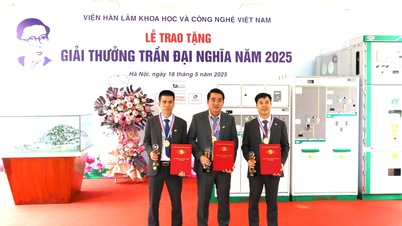
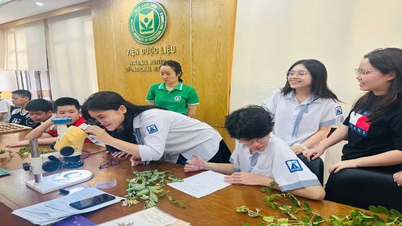








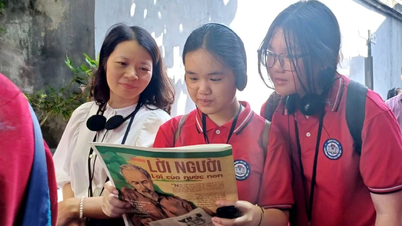

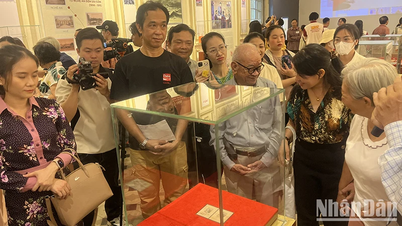
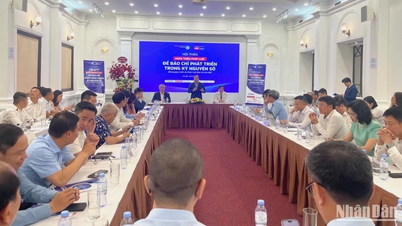
![[Photo] Many young people patiently lined up under the hot sun to receive a special supplement from Nhan Dan Newspaper.](https://vphoto.vietnam.vn/thumb/402x226/vietnam/resource/IMAGE/2025/5/18/6f19d322f9364f0ebb6fbfe9377842d3)
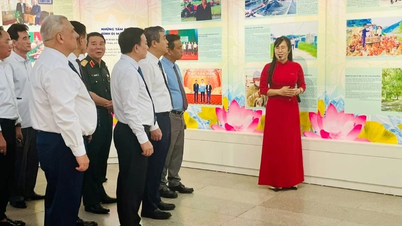
![[Photo] General Secretary To Lam visits exhibition of achievements in private economic development](https://vphoto.vietnam.vn/thumb/1200x675/vietnam/resource/IMAGE/2025/5/18/1809dc545f214a86911fe2d2d0fde2e8)

















































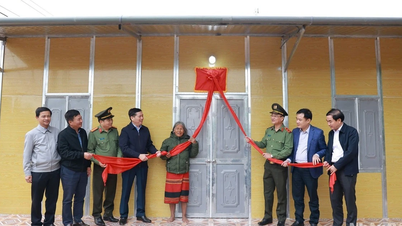



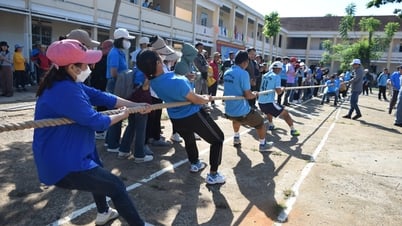











Comment (0)